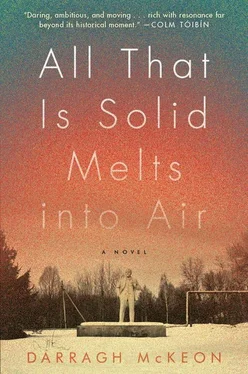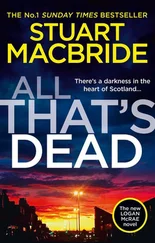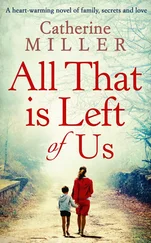This is what men do too, Yevgeni thinks. Even as they get older, this is what they do. He didn’t know such a thing. How could he? What men does he know apart from Mr. Leibniz and a couple of male teachers; the gym instructor? He has no recollections of being in the company of grown men. He has never been taken anywhere by his father: no films or poolrooms, no games of football in the park. No one has ever shown him that this is what it is to be grown up, hanging around poker tables and burning barrels, fighting and drinking. There are things his aunt and mother couldn’t provide. Maybe he has been raised as a little girl all along. He needs to accept this opportunity.
He stands there looking at the man, cowering. They shove him forward. He can hear Iakov say, “Kick him in the head.” It sounds to Yevgeni like he’s calling it out from a hundred metres away.
The other men snicker.
“ Do it.”
This is what men do. This is what it means to be one of them. Yevgeni lets fly a kick into the man’s neck and there follows a rumbling cheer from the others, and he swings out again and again, the man’s neck soft and doughy at his foot, and the man looks up at him, eyes burning in indignity, and Yevgeni draws back and makes contact with the man’s chin, which sends him sprawling backwards. The contact feels as solid as kicking a wall, something dense, not muscle and fat, hard bone. His foot is ringing with the impact. One more into the body of the man. Another one. He’s not the helpless one anymore, the one with dainty fingers. It’s his fists and his feet that will carry him through.
He stops, panting, satiated.
The others walk on, and Yevgeni stays and looks at what he’s done.
The man groans in a basso rumble and takes on the same form as the TV: shattered, slumped.
Yevgeni runs to catch up.
Chaos is building. Crowds are tearing through the streets now, cars parked at any angle, dumped in the middle of the road. People are running in all directions. A line of militia vans snakes its way towards them, their roof lights pulsing colour into the air. They cross the road and wait for the militia to pass, and the oldest of the men approaches a car. He shatters the driver’s window with his elbow and unlocks all the doors, and they pile inside. Yevgeni squeezes into the middle of the backseat, his shoulders almost around his ears. The man in front takes a screwdriver from his pocket and jams it into the ignition, and the car stammers into life and the back wheels screech, and they pull out into the road, the back end fishtailing from side to side, and Yevgeni can feel the heat of the two men pressed beside him, Iakov in the front seat whooping with excitement, and where the hell are they going, taking up the middle of the road, fireworks in front of them, still blossoming blue.
They gather speed, careening through the streets. Yevgeni has to lean forward and clutch the headrests of the seats in front in order to avoid being shaken around. The men beside him list from side to side as though caught in the midst of a powerful sea storm. If they crash head-on into something, Yevgeni knows he would be flung through the windscreen. Air whips through the car from the broken window, fragments of glass shuffle across the dashboard.
They brake suddenly, and a woman sprawls over the hood but rolls off sideways and continues into the street. Yevgeni can’t believe that the driver can anticipate anything, considering the speed at which they’re travelling.
The driver constantly combines the hand brake and accelerator, so that the car bolts and buckles with a stubborn will and Yevgeni’s shoulders keep connecting with the seats in front. He has to concentrate intently to avoid ramming his head into the hard frames underneath the upholstery.
They drive for ten minutes maybe, the driver relaxing—less to contend with as they move to the outskirts of the city. Yevgeni is glad, after all, that they’re not bringing him home; he’s not ready to face his mother and aunt, not after what just happened. And he doesn’t even want to think about playing the fucking kiddie tune.
They screech sideways and come to a halt. He hears doors click open one after another, and the men jump out. He stays where he is for a moment, disoriented, nauseous.
He hears Iakov shouting after him and gathers himself and steps out of the car. They are far away from anywhere, some industrial area. The place is lit only by car headlights; they aren’t the only ones who have decided to come here, wherever here is. Gigantic light poles, like tree trunks in the gloom. People running, carrying large boxes with their lids torn off, dumping them inside the cars and then running back for more. Some people, his mother’s age, older, are pushing and dragging caged carts, the kind you see being hauled out of delivery vans, stacked with boxes upon boxes. The boxes spill out their contents as they’re being bumped along. A packet of biscuits rolls end over end towards a drain, scuttling away from the madness. A can of sardines comes to a stop against a lamppost.
Kids a few years younger than Yevgeni are smashing windscreens with wheel wrenches. The glass sounds like crashing waves and the panes fold in a way he wouldn’t have predicted, a tapestry of cracked glass that curls up like burnt paper. Near the steel roll-up door at the entrance to the nearest warehouse a young woman is pouring honey into her mouth, and it spills along her neck and slowly makes its way down her T-shirt, though not spilling exactly, he thinks, rolling, turning over upon itself.
Inside, people have paraffin lamps and candles and torches for guidance, and they crash their carts into one another’s and scream and yell.
Boxes stacked upon boxes, wide aisles of thick steel shelving. People crawling up them, ripping and tearing with glee, feeding on their contents, dropping them from a height to their partners on the floor down below. People throwing jars against the concrete floor just to watch them explode. Yevgeni stays near the walls, crouching out of sight, retreating into the darkness. At the end of a centre aisle, four boys stand and tear the tops off cardboard packets of washing powder and shake them out, and the white particles drift down in a foggy haze, settling in piles, sticking to the thin metal filaments of the shelving units so, at a glance, they seem like small, snow-laden trees in what looks like a minute winter garden, a place of quietude amid all the chaos. Yevgeni hunkers down in an empty space under the shelves and tucks his legs up, wrapping his arms around them, and watches the soap dust linger on its way down and smells the soft chemical smell, and thinks of his aunt and his mother standing on their balcony at home, wearing the borrowed dresses, their hair pinned up, staring at the fireworks, wondering where he could be, their hands knitted in worry, starch under his mother’s nails.
BUT HIS MOTHER stands alone, watching, wearing her housecoat, a scarf wrapped around her pinned-up hair, looking out for her boy, trying to make out his form in the moving shadows. Maria is inside, at the table, clasping Grigory’s hand, two steaming glasses of tea in front of them. They don’t speak. Now is not the time. Now is only the time to sit and be free from explanations. Grigory removes his hand from hers and clasps her shoulder, her upper arm, her wrist, examining each part of her by touch, turning them over in his skilled hands, naming her bones once more, claiming them, whispering, “Manubrium. Ulna. Radius. Scapula.”
Alina turns towards the door and watches. She can’t go inside to break their reunion. She can’t go to bed alone, imagining her boy out there. She can only stand here, on this balcony, waiting dutifully.
Sunlight has persuaded the city to return to itself once more. Yevgeni steps into the morning. It’s time to go home. He passes a construction site and stops and walks in, wary of guard dogs, and opens the cab of a digger and finds what he had hoped, a workman’s jacket, heavy and black with a luminous strip around the waist. He takes it, resolving to bring it back in a couple of days. Someone will arrive at work and have to make do with a thin coat, and there are many things in life that aren’t fair but this is one he can do something about.
Читать дальше












